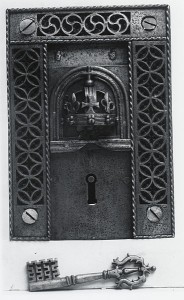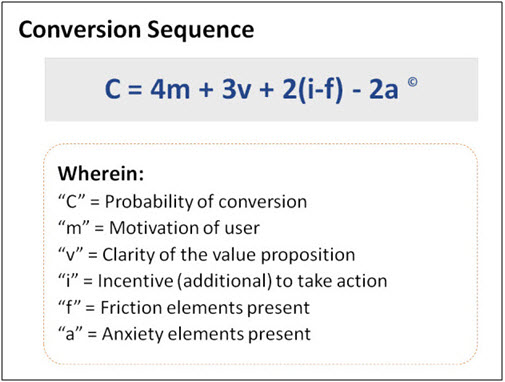Anxiety is one of the key elements in the MarketingExperiments Conversion Heuristic. In our Landing Page Optimization Online Course, anxiety is defined as “a psychological concern stimulated by a given element in the sales or sign-up process.”
Essentially, anxiety is a negative element on your landing page that reduces the likelihood that a potential customer will take a desired action.
It’s no big surprise that experiments with our Research Partners have found third-party privacy and security seals help reduce customer anxiety and improve conversion.
So, let’s take a look at two types of seals that can help you reduce customer anxiety.
SSL Security Certificates: The lock and key
 Secure sockets layer (SSL) security certificates use cryptographic keys to protect the data exchange between users browsing on a company’s website. Once a company installs a certificate on its Web server, it activates the padlock and allows a secure connection from a Web server to the users’ browser.
Secure sockets layer (SSL) security certificates use cryptographic keys to protect the data exchange between users browsing on a company’s website. Once a company installs a certificate on its Web server, it activates the padlock and allows a secure connection from a Web server to the users’ browser.
The basic idea behind an SSL security seal is that the website is taking basic security measures to protect your personal information.
When I asked Steve Beger, Senior Development Manager, MECLABS, how SSL certificates reduce customer anxiety, he explained SSL offers a token of reassurance for customers concerned with data vulnerability.
“It offers a comfort factor that gives customers a reassurance that their personal information is not fully exposed to exploitation,” Steve explained.
Privacy Seals: The watchdog
Privacy seals, also called trustmarks, are based on third-party regulatory programs that review a website’s customer data handling before a certificate is issued to the applicant.
based on third-party regulatory programs that review a website’s customer data handling before a certificate is issued to the applicant.
Privacy seals offer an added perk for consumers because they can file complaints with the certificate’s issuer if any problems with privacy should surface.
When I asked Steve how privacy seals differed from SSL certificates in terms of reducing anxiety, he explained that compliance vetting by the seal issuers made them a little more of a challenge to gain, but with the increased difficulty comes increased anxiety mitigation.
“The idea here is that because privacy seals are a little more intensive to acquire, given a company has to undergo a certification process that reviews internal their data collection policies and process, then the perceived third-party credibility with users here is probably going to be a little higher.”
It takes longer to build trust than to destroy it
The anxiety surrounding trust and safety are big factors in conversion.
Every customer wants to feel safe when pulling out their credit card for to buy a new pair of shoes or giving you their date of birth in one of probably too many form fields.
While no seal can promise absolute safety, the effort to protect customer data on your part goes a lot further in establishing credibility, than no effort.
Credibility that is never easy to build because it takes far less time to destroy customer trust than it does to earn it.
Photo attribution: Henry Walters, Edmontcz
Related Resources
Anxiety: Use privacy as a competitive advantage





I always looked for the ‘lock and key’ on a site before offering my hard earned money in exchange for its wares. Yet I was not as aware of how privacy elevates a site above the rest. I always assumed a site would protect my privacy, in order to avoid certain backlash.
This is an excellent article. Thank you for sharing this useful information. It will be tweeted.
Hi John,
Thank you for the kind words. I’m glad you enjoyed the post.
best,
John Tackett
Thanks, I love your formula! How would you address LPO and security reassurances in relation to form submission conversion goals, if at all? We use (relatively) short enquiry forms on our landing pages, but absolutely no trust features on the page. I’m wondering if this is an error for conversion on our part. Love to have your input.
That conversion formula is amazing, now we know where to focus for conversion lift.